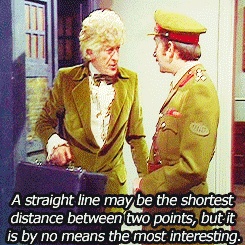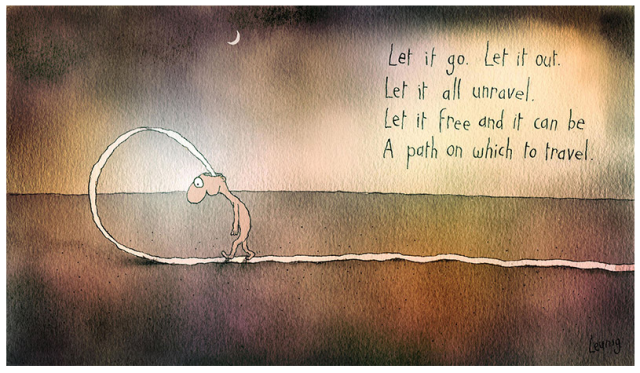Mae Jemison
Don’t let anyone rob you of your imagination, your creativity, or your curiosity. Go on and do all you can with it, and make it the life you want to live.
Alice Munro, “Meneseteung,” 1988:
I thought that there wasn’t anybody alive in the world but me who would know this, who would make the connection. And I would be the last person to do so. But perhaps this isn’t so. People are curious. A few people are. They will be driven to find things out, even trivial things. They will put things together, knowing all along that they may be mistaken. You see them going around with notebooks, scraping the dirt off gravestones, reading microfilm, just in the hope of seeing this trickle in time, making a connection, rescuing one thing from the rubbish.
Daniel Quinn, Ishmael, (1992: 14):
“Once you learn to discern the voice of Mother Culture humming in the background, telling her story over and over again to the people of your culture, you’ll never stop being conscious of it. Wherever you go for the rest of your life, you’ll be tempted to say to the people around you, ‘How can you listen to this stuff and not recognize it for what it is?’ And if you do this, people will look at you oddly and wonder what the devil you’re talking bout. In other words, if you take this educational joinery with me, you’re going to find yourself alienated from the people around you–friends, family, past associates, and so on.”
Dr. Who:

Alvin Toffler:
The illiterate of the 21st century will not be those who cannot read and write, but those who cannot learn, unlearn, and relearn.
Cesare Ripa, Iconologia (1603):
A woman clothed in changeable garments; grave of visage and years; crowned with gold. Having in her right hand a file, whereupon the handle is written: “Detrahit Atque Polit”, which is: “She takes off and makes smooth.” Having in her left hand a garland wreathed together of laurel, Ivy and Myrtle, on which hang two pomegranates. She shall sit on a chair adorned with leaves and fruits of cedar, cypress and oak, also of olive branches. The chair shall [be] seen from that side where she leans with her [left] elbow which is next to the figure. She shall sit in a shadowed court, rich of trees like a garden, planted round with Plantani, or Arenthorne. Before her feet she shall have many books. Among which, shall sit a monkey; which shall be clothed with changeable garments of all colors: to express the variety of knowledge which are taught in a learned Academy.
Norton Juster, The Phantom Tollbooth (1961):
“[I]t’s not just learning things that’s important. It’s learning what to do with what you learn and learning why you learn things at all that matters.” – Rhyme
“Many of the things I’m supposed to know seem so useless that I can’t see the purpose in learning them at all.” – Milo
“You may not see it now… but whatever we learn has a purpose and whatever we do affects everything and everyone else, if even in the tiniest way. … Whenever you laugh, gladness spreads like the ripples in a pond; and whenever you’re sad, no one anywhere can be really happy. And it’s much the same thing with knowledge, for whenever you learn something new, the whole world becomes that much richer.” – Reason
To make discoveries, you have to be curious about why the universe is the way it is.
If you wish to make an apple pie from scratch, you must first invent the universe.
Douglas Adams, The Restaurant at the End of the Universe:
The story so far: In the beginning, the universe was created. This has made a lot of people very angry and been widely regarded as a bad move.
It’s good to be curious about many things.
Zora Neale Hurston:
Research is formalized curiosity. It is poking and prying with a purpose.
John Burroughs:
Joy in the universe, and keen curiosity about it all – that has been my religion.
Eleanor Roosevelt:
I think, at a child’s birth, if a mother could ask a fairy godmother to endow it with the most useful gift, that gift should be curiosity.
Dorothy Parker (attributed):
The cure for boredom is curiosity. There is no cure for curiosity.
Tina Fey, BossyPants (2011):
The first rule of improvisation is AGREE. Always agree and SAY YES. …The second rule of improvisation is not only to say yes, but YES, AND. You are supposed to agree and then add something of your own. … To me YES, AND means don’t be afraid to contribute. It’s your responsibility to contribute. Always make sure you’re adding something to the discussion. Your initiations are worthwhile. The next rule is MAKE STATEMENTS. … In other words: Whatever the problem, be part of the solution. … THERE ARE NO MISTAKES, only opportunities. … In improv there are no mistakes, only beautiful happy accidents. And many of the world’s greatest discoveries have been by accident. I mean, look at the Reese’s Peanut Butter Cup, or Botox.
Albert Einstein:
The important thing is not to stop questioning. Curiosity has its own reason for existing.
Richard Henry Dana, Jr.:
Those who dare to teach must never cease to learn.
Malcom S. Forbes:
Education’s purpose is to replace an empty mind with an open one.
Stephen Colbert:
Cynics always say no. But saying ‘yes’ begins things. Saying ‘yes’ is how things grow. Saying ‘yes’ leads to knowledge. ‘Yes’ is for young people. So for as long as you have the strength to, say ‘yes.’
University of Texas at El Paso Handbook of Operating Procedures:
Academic freedom is an indispensable element of that larger liberty that includes the right to free expression. Because a free society and freedom itself rest upon the continuous search for knowledge, and because institutions of higher education are primary agencies for the acquisition and dissemination of knowledge, a faculty member is entitled to full academic freedom in research, in the publication of results and conclusions, and in the classroom presentation of his or her subject.
If your total freedom of choice regarding what to think about seems too obvious to waste time discussing, I’d ask you to think about fish and water, and to bracket for just a few minutes your skepticism about the value of the totally obvious.
Curiosity will encourage you to ask questions about what you could do with the skills, knowledge, experience and relationships that you have. Just replacing ‘should’ with ‘could’ opens up new stories.
A human being should be able to change a diaper, plan an invasion, butcher a hog, conn a ship, design a building, write a sonnet, balance accounts, build a wall, set a bone, comfort the dying, take orders, give orders, cooperate, act alone, solve equations, analyze a new problem, pitch manure, program a computer, cook a tasty meal, fight efficiently, die gallantly. Specialization is for insects.


Re: Mr. Rogers – I suspect you’ve seen this, but if not, please do enjoy:
Dave
It’s great and well worth another viewing! :-) Thanks for the recommendation!
Lol – shows how much I pay attention… sorry for the doubling up. Agreed that this was the best viral video of 2012 for me though.
Pingback: Publication Policy | Carto-Caricatures: Cartographic Caricatures